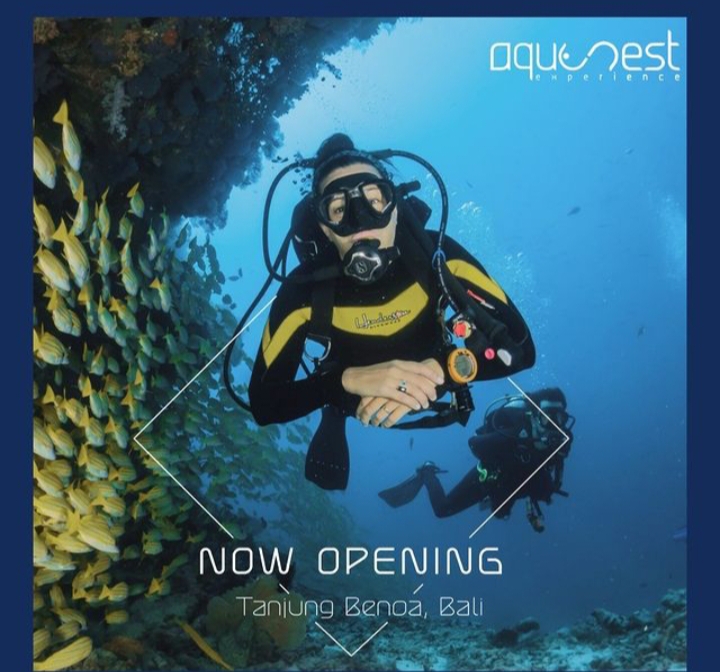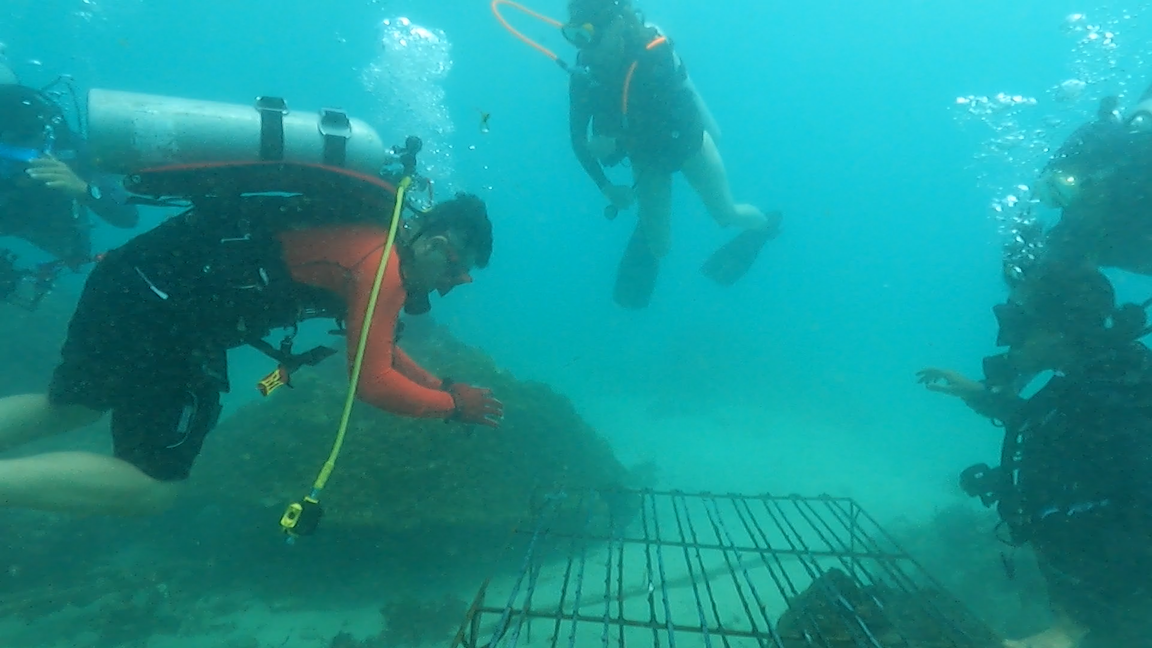TANJUNG BENOA, ULTIMOPARADISO – Holidays to Bali are now more varied and enjoyable. There is another program that has just been launched by AquaNest in Tanjung Benoa, namely the Coral Foster Parents Program in Tanjung Benoa. Communities can be involved in efforts to conserve coral reefs and marine ecosystems, in addition to experiencing the popular water tourism activities in Bali
AquaNest, the manager of spot water ecotourism in Tanjung Benoa, Bali, officially launched the Coral Foster Parent Experience for the general public.
The Coral Foster Parent Experience is a diving experience while also being involved in the restoration and conservation of coral reef ecosystems. This program is the only one that is commercial and open to all levels of society by appointing certified foster children from Mari Culture in Indonesia.
“So far, conservation activities have only been carried out by the government and non-government organizations. Through the Coral Foster Parent Experience program, the community can be involved in efforts to restore and conserve Indonesia’s coral reef and marine ecosystems, in addition to experiencing the popular water tourism activities in Bali,” said Dirga Adhi Putra Singkarru, CEO, AquaNest Experience.
 AquaNest targets that the managed Tanjung Benoa area will become one of Indonesia’s coral bases, which is aimed at restoration and preservation of coral reef ecosystems. This also includes educational and conservation research.
AquaNest targets that the managed Tanjung Benoa area will become one of Indonesia’s coral bases, which is aimed at restoration and preservation of coral reef ecosystems. This also includes educational and conservation research.
As a tropical maritime region, Indonesia is home to 569 species or 67% of the world’s total 845 coral species. Data from the Central Statistics Agency (BPS)[1] shows that the area of coral reefs in Indonesia, which once touched 2.5 million hectares (2018), is now just over 1.7 million hectares, with 16.32 percent damaged.
Specifically in the Polewali Mandar Regency, West Sulawesi, based on a survey conducted by the Environment Agency, together with the Laboratory of Geomorphology and Coastal Management (LGMP), Hasanuddin University, in 2005, there were 13 coral reef distribution areas. However, concentrations of damage to coral reef ecosystems were found in 9 areas, namely Tanjung Ujung Dato, Karamassang Island, Pasir/Gusung Toraja Island, Ujung Labuan, Karama Island, Palippis, Taka Killing, Pulo Panampeang and East Battoa Island. The damage that occurred was caused by the use of explosives, poisons and the removal of coral as a material for building foundations.
Aside from human activities, changes in environmental temperature due to global warming that hit tropical waters in 1998 have caused coral bleaching followed by mass mortality reaching 90-95%. At that time, the average surface temperature of water in Indonesian waters was 2-3°C above normal temperature.
The sustainability of coral reefs is also threatened by plastic waste. Every year it is estimated that the Indonesian sea receives 70-80 percent of the plastic waste used for human consumption, with an amount of between 480 thousand – 1.29 million tons of waste that enters the sea and coasts. Research has found that coral reefs that are covered in plastic waste can die because they don’t get sunlight to grow.
“I want to invite the people of Polewali Mandar, where I want to contribute to society, the nation and the state, to develop more responsible fishing practices to restore the condition of coral reefs. Because after all, the recovery of coral reefs will have a very positive impact on the capture fisheries sector where this area has great capture fisheries potential, even contributing up to 40.54 percent to West Sulawesi’s capture fisheries, as well as the pace of marine tourism development,” said Dirga Adhi son of Singkarru.
Considering that coral reefs are very important for the life of marine biota and have the potential for the tourism industry, coral reef restoration must be one of the priorities of many parties in Indonesia, including the Indonesian Coral, Shellfish and Ornamental Fish Association (AKKII) as one of the stakeholders who have an interest in reefs. Indonesian coral.
In collaboration with several other stakeholders including the Ministry of Maritime Affairs and Fisheries (KKP), for example, AKKII has provided training to Balinese residents to restore coral reefs through the construction of coral gardens under the ICRG (Indonesia Coral Reef Garden) program, one of which is in the Tanjung Benoa area, Nusa Dua. , Bali.
AquaNest Experience as a ‘one stop’ water adventure experience and diving course for all people and ages (including children with parental supervision), goes a step further by launching the Coral Foster Parent Experience tour package. With this new service, AquaNest Experience now provides unlimited opportunities for anyone to heal in Bali as well as contribute to saving coral reefs.
“Anyone, young and old, children and adults, solo travelers as well as families, local and international travelers, environmentalists to diving activists, can experience this by coming to the AquaNest Experience in Tanjung Benoa, Nusa Dua, Bali, and buying packages starting from IDR 750,000,” said Dirga.
You can experience Discover Scuba Diving or be represented if you have a phobia of diving. After that, the instructor will guide you to carry out the procession of transplanting coral children from their broodstock at a depth of 0 to 5 meters. After transplanting, proceed with planting in separate coral reef planting areas.
The newly planted saplings will be tagged with the names of the saplings and the names of their foster parents. After planting, tourists who have become foster parents will receive a certificate, and are advised to visit their foster children within a period of 6 months to one year after planting.
AquaNest guarantees a 99 percent success rate of replanting this child coral. Unless there is an unwanted force majeure, such as an underwater earthquake, ocean warming, or something of a natural nature, the possibility of the chicks failing to grow and develop is very small.
“The Coral Foster Parent Experience has positioned AquaNest as a one stop water adventure solution for anyone visiting Bali and enjoying the unlimited opportunities to go healing and make the coral smile,” said Dirga Adhi Putra Singkarru.
“We hope that the program to restore or restore damaged coral reef ecosystems through the coral foster parents program that we are doing at AquaNest can be implemented in other areas in Indonesia so that restoration of coral reefs in Indonesia will be more extensive and the country’s foreign exchange from marine tourism will increase,” concluded Dirga. ***


